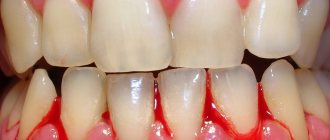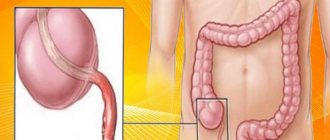general information
Blood during bowel movements in women is a fairly common problem that should prompt immediate medical attention. Such a symptom may indicate the presence of a wide variety of diseases, ranging from hemorrhoids to colon cancer.
Experts, based on the nature of bleeding, distinguish the following forms:
- Weak.
- Moderate.
- Strong.
In a mild form, during bowel movements, blood appears in small volumes (a few drops). The patient usually does not experience any obvious discomfort or pain. Moderate bleeding is also most often ignored. The strong form is characterized by a large number of blood clots in the stool, the patient experiences a decrease in blood pressure, and in some cases even loss of consciousness.
Processes occurring in the body
Constipated feces are a hard mass that injures the intestinal walls. In a normal situation, feces accumulate to a certain amount, are distributed and cause a characteristic sensation in the body. The brain can only initiate the natural act of emptying. Due to the impossibility of defecation, the intestines become enlarged. Long-term treatment for constipation is required to restore their original shape.
Mechanism of constipation
Doctors identify a number of characteristic mechanisms for the appearance of difficult-to-pass stool. These include:
- Neurogenic constipation, when the intestines stop working correctly.
- Nutritional, which is a consequence of the process of dehydration of the body due to insufficient water consumption.
- Mechanical, resulting from uneven movement of chyme in the intestine.
- Spastic, manifested by spasm with increased tone of certain areas of the intestine. The mechanism of bleeding occurs from nervous stress or poisoning.
Predisposition factors
The need to eliminate factors that lead to constipation with subsequent bleeding concerns all people. Difficult stool can occur in children, adults, women during pregnancy, and in those who give birth after cesarean section.
A number of reasons that provoke or indirectly allow the occurrence of constipation:
- Colon disorder.
- Poor nutrition, insufficient consumption of vegetables.
- Lack of water in the body.
- Hormonal imbalances.
- Lack of mobility.
- The use of medications that cause bloody constipation with repeated use.
Difficult stool in pregnant women and those giving birth after cesarean section
For pregnant women, the appearance of blood in the stool is natural due to hormonal changes and physiological transformations from the growth of the fetus. Processes in the body of a pregnant woman enlarge the uterus and disrupt the mechanics of digestion. For these reasons, pregnant women may develop hemorrhoids. It does not pose a serious danger if blood does not flow constantly and abundantly. If there is an excessive amount of blood released, fainting occurs, which means that injury to the body or fetus is possible.
Women who give birth after cesarean section also sometimes experience unpleasant symptoms of constipation with bleeding. Doctors do not associate this operation with the manifestation of difficult stools. The reasons are shared with other people.
Bloody stool in a baby
A common cause for concern is the appearance of blood in a baby's diaper. If your baby has eaten tomatoes, beets, or blueberries, which stain the stool with brown flowers, then there is nothing to worry about. Perhaps the baby took medications with a high iron content. Thanks to medications, stool has lost its natural color.
The main rule is attention to the general condition of the child, since pathology and internal bleeding are confirmed not only by scarlet feces, but also by other symptoms.
The baby's mood is a sure indicator. A wincing, crying child during bowel movement makes it clear that his body is not in order. A happy and cheerful baby does not cause unnecessary panic.
https://youtu.be/2Zrc8fUe-fQ
Haemorrhoids
The development of this disease is based on varicose veins in the rectal area. Blood after defecation on paper is a clear sign of this pathology.
It appears as a result of sequential damage to the so-called hemorrhoidal cones by stool during constipation. This kind of discharge, as a rule, is not characterized by painful sensations. Discomfort occurs only if the disease is accompanied by anal fissures or paraproctitis.
Hidden bleeding
Sometimes bleeding may be hidden and only detected during laboratory testing of stool samples (fecal occult blood test). The causes of such bleeding are as follows:
- Mechanical damage to blood vessels due to injury (occurs with constipation, dry and hard feces).
- Damage to a vessel as a result of necrosis of the intestinal wall, during germination or disintegration of a neoplasm. Such bleeding is called arrosive.
- Increased permeability of the vascular wall due to a systemic disease (for example, sepsis). This is a diapedetic hemorrhage.
In most cases, the causes of internal bleeding are associated with chronic diseases of the digestive system: malignant neoplasms, polyps, ulcers in various parts of the gastrointestinal tract, erosive gastritis, cirrhosis of the liver, etc. Even if the integrity of the mucous membrane has not yet been compromised, and the underlying disease has not resolved itself. manifests, any of these pathologies can provoke constipation with blood, visible or hidden, which should be a reason for a serious examination.
Rectal fissures
Damage to the mucous membrane most often occurs from constant stretching of its walls with large feces. Scarlet blood during defecation in women remains on toilet paper and even on underwear. Patients usually complain of severe pain in the anus. In some cases, drops of blood may appear after strenuous physical activity or after pushing due to constipation.
It is important to note that with rectal fissures, bleeding does not mix with feces. Mucus is either completely absent or comes out in small quantities. If bloody discharge is mixed with feces, intestinal tumor diseases are most likely present.
Competence of doctors
Abundant blood discharge from the anus, melena, vomiting, acute abdomen, weakness and other symptoms of a sharp deterioration in health are considered emergency conditions. You need to urgently call an ambulance to your home.
If there are light red streaks in the stool and scarlet spots on the paper, you should first be examined by a proctologist. For constipation with the regular appearance of pathological impurities in feces, consult a gastroenterologist. These doctors may refer you for additional consultations with an oncologist or other doctors.
Diverticulosis
With this pathology, small protrusions gradually form on the intestinal walls. According to experts, the disease develops due to the weakness of these walls. Diverticula themselves are not accompanied by obvious clinical signs until they become directly inflamed. As a result, there is a rupture of the protrusions, the patient’s temperature rises, and severe pain appears in the abdominal area.
If such pathological changes affect the mucous membrane of the diverticulum, blood appears at the end of defecation. When the inflammatory process occurs in the sigmoid colon, the discharge is predominantly scarlet in color. With the development of pathology, dark and even black blood appears in the right parts of the intestine. This condition should alert everyone and become an impetus for seeking qualified help.
Polyps
Polyps are benign neoplasms. For a long time, the patient may not notice the presence of new “inhabitants” of the intestines. In some cases, diarrhea or constipation occurs.
The danger of this pathology is that in the absence of timely treatment, polyps can transform into a cancerous tumor. Their surface often bleeds. The larger the size of the tumor, the more easily the polyp itself is damaged.
Prevention
In order to avoid constipation in the future, you need to follow simple rules:
- move more;
- eat enough fiber;
- drink fluids more often (preferably clean water);
- do not suppress the urge to defecate;
- avoid stressful situations.
In general, you need to carefully monitor the condition of the entire body. Constipation is a serious bowel disorder that needs to be treated promptly. This is done by maintaining a proper lifestyle and balanced diet, or in advanced cases - with the help of medical intervention. But rather than treating constipation, it is better to prevent it by taking preventive measures.
Colon cancer
This is the most common type of cancer and is fatal for hundreds of thousands of people around the world every year. A clear sign of the disease is blood during bowel movements, and the discharge is not accompanied by painful sensations. They, as a rule, can be the only symptom of the disease for quite a long time. Patients confuse it with hemorrhoids or other non-life-threatening diseases, and as a result, they are in no hurry to see a doctor. Moreover, many try to cope with the problem on their own, resorting to the help of traditional medicine recipes.
This approach to combating pathology is wrong. When the blood volume increases at the end of a bowel movement, the patient decides to consult a doctor. By this time, the disease has already entered a new stage, which significantly complicates its therapy.
The risk group for colon cancer includes, first of all, people over the age of 45, as well as those who have previously been diagnosed with polyps.
Diagnostics
To make an accurate diagnosis and prescribe the correct treatment, the proctologist performs the following manipulations:
- taking an anamnesis: the nature of the discharge, general health, complaints;
- thorough rectal examination;
- additional diagnostic methods: endoscopy, coprogram, x-ray.
Most diseases that cause bleeding respond well to treatment. But there are also those in which surgical intervention is indicated. There are few of them, so a visit to a proctologist is required at the first appearance of even minor signs of such diseases.
Blood during bowel movements in women during pregnancy
Many pregnant women often note scarlet discharge from the anus. Most often, this problem occurs in the last months of pregnancy. Doctors explain its appearance by the most common disease called hemorrhoids.
Don't worry ahead of time. The development of hemorrhoids is associated with a change in the usual localization of some internal organs. After the baby is born, as a rule, the woman’s body is completely restored.
If the blood on paper increases in volume after defecation, hemorrhoids interfere with leading a normal lifestyle, it is recommended to seek help from a doctor. Taking into account the interesting situation of the woman, the specialist prescribes appropriate treatment. As a rule, it is based on eliminating existing constipation and relieving pain.
To normalize the functioning of the gastrointestinal tract, women are recommended to completely reconsider their usual diet. It is necessary to consume more fermented milk products, avoid heavy and unhealthy foods. Many dried fruits, for example, prunes, have an excellent laxative effect.
Conservative treatment methods include the following: the introduction of antihemorrhoidal suppositories, lubricating the anal area with special ointments and creams. Such medications do not have a negative effect on the fetus inside the womb, since they act exclusively locally. The components they contain prevent the formation of blood clots, relieve inflammation and have a strengthening effect on the walls of blood vessels. Before taking any medications, it is very important to consult a doctor so as not to harm the fetus.
Causes of constipation
The reasons that cause the development of severe constipation are quite varied. More often than others, children and the elderly suffer from peristalsis disorders. In general, a number of reasons for the occurrence of constipation can be identified:
- Eating disorder and improper diet.
- Insufficiently active lifestyle.
- Proctological diseases.
- Stomach and intestinal diseases.
- Prolonged nervous tension and damage to the central nervous system.
- Endocrine diseases.
- Oral administration of medications.
- Pregnancy.
Regardless of the reason, you need to take care of your body and take all possible measures to eliminate the unpleasant condition.
What to do? Necessary treatment
Diagnosis and treatment of pathologies that provoke the appearance of blood during bowel movements is carried out by a proctologist, oncologist, gastroenterologist or therapist. If the patient has doubts about which specialist to contact, the first step is to visit a therapist. He must prescribe a series of tests and conduct an examination. Based on the test results, you can determine the reason why blood appears during bowel movements, and go to a specialist for an appointment.
To clarify the specifics of the disease, the doctor may additionally examine the anus, palpate the lower intestine, prescribe irrigoscopy and sigmoidoscopy.
Taking into account the fact that a wide variety of diseases can be the cause of bleeding, there is no single method of treating this pathology. First of all, it is necessary to determine the disease that provoked it, and then proceed to a therapeutic course.











